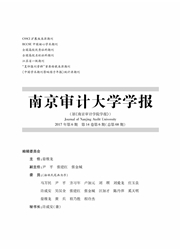

 中文摘要:
中文摘要:
企业承担环境责任、实施清洁生产是一种复杂、高级的市场行为,企业的有限理性、经营信息的不对称性以及机会主义行径是导致企业承担环境责任市场失灵的主要原因,因此仅仅依靠市场的调节无法有效调动企业实施环境战略的积极性。然而,用于纠正市场失灵的行政干预措施在技术、成本、公平等方面也存在缺陷。为此,针对企业减排激励机制问题,选择行政干预的两类主要措施——“集中化管控”与“分散化管理”进行经济学比较分析,在对两类调控机制的优点与瓶颈进行充分考虑的基础上,认为基于企业减排技术与成本特征、基于市场调节辅之以行政管控的混合型分散式调控能够使得企业个体以可接受的方式,自我持续、渐进地向着不断调整的环境治理目标接近。
 英文摘要:
英文摘要:
As far as enterprises are concerned, the undertaking of environmental responsibility and the implementation of clean- er production is, in essence, a complex, senior market behavior. The limited rationality, its own management information asym- metry and opportunism behavior of enterprises are the main reason for market failure of environmental responsibility. Therefore, only relying on the market regulation can not effectively mobilize the enthusiasm of enterprises to implement environmental strategy,however,as for administrative intervention measures as a rectification towards market failure, there exist defects in technology, cost, equity and other aspects. In view of the problems existing in enterprises' emission reduction incentive mecha- nism, we make a choice of two main administrative intervention measures centralized control and decentralized management and make a comparative analysis on them. Considering the advantages and bottlenecks of two kinds of eontrol meehanism, we put forward a hybrid type of decentralized regulation mode based on enterprise emission reduction technology, cost characteris- tics, market regulation complemented by administrative control, which can make the individual enterprise, in an acceptable and self-sustaining manner,adjust itself to the environmental management targets continually and gradually.
 同期刊论文项目
同期刊论文项目
 同项目期刊论文
同项目期刊论文
 期刊信息
期刊信息
